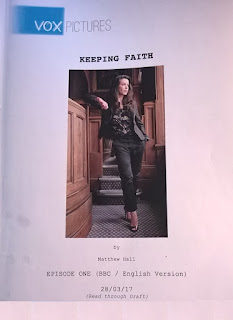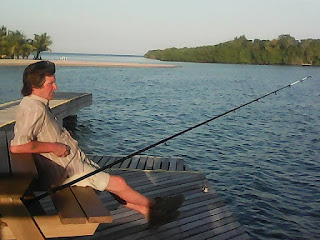Research In The Ring - Busting Your Nose For Art
January 12th sees the publication of A Life To Kill, the seventh novel featuring Coroner, Jenny Cooper.
It's a book that came about by a chance encounter a couple of years ago with an old acquaintance from student days, Frank Ledwidge, who had been in military intelligence in Iraq and Afghanistan. As I explain in the author's note at the end of the book, Frank told me about his experiences in these two wars he considered dubious, to say the least, and introduced me to a young infantry officer named Ed who had recently commanded a combat platoon in Helmand.
Talking to Ed, I got an unvarnished insight into the reality of combat for the very young men who fight on the front line. Ed was 25 when he commanded his platoon, his men were mostly aged 18 to 23. The average age of an infantry soldier is 20. What he told me became the raw material and inspiration for the story. The factual details of the living conditions of the soldiers is completely real and straight from the horse's mouth.
I like to research my books as much as I can. Talking to Frank, Ed and others, including a very senior coroner with long experience of conducting the most politically sensitive of military inquests, gave me all the factual information I needed to tell an accurate story. There was still a bit missing, though, which was an insight into the minds of young men who, charged with testosterone, are propelled into violence.
Male aggression is a hard thing to explain to those who have never experienced it for themselves. It's a vital energy that when harnessed and directed can be used to huge creative or destructive effect. Most young men fantasize about violence to some extent, not because they consciously wish to inflict it, but because it's part of the elemental animal make-up. The violent instinct is that which can become career ambition, or sporting talent. It's just energy that manifests in a particular way - and it's strong enough to overcome the fear of injury or even death.
I couldn't go to war, but I could try to tap into the experience of being a 'warrior', albeit one who wasn't going to be shot at. I signed up along with a bunch of lads from Bath and Bristol for an intensive boxing programme that ended with a big tournament in front a crowd in an indoor arena in North Somerset. It was billed as a 'white collar' event, but the few of us with desk jobs were heavily outnumbered by the boys who make their living scaffolding, plastering and myriad other ways of working up a sweat. In amongst them were a few former soldiers (though they still looked like boys to me), who proved another useful source of information.
As soon as we started training, whatever we did for our day jobs ceased to matter. It was all about trying not to get hurt while landing a few. I turned out to be very good at getting hit and spent months sporting black eyes and bruised ribs! It was fun, though, and more than that, absolutely exhilarating. To my surprise, even at 46 I had plenty of violence left in me, and during the months of training it found an outlet in boxing: I have never felt calmer or more at ease with the world than during that period. Ed had said to me that there something almost 'zen' about the experience of being a soldier in a forward command post for six months. I began to understand what he meant: everything came into sharp focus. All other cares fell away. Preparation for a big fight in front of a crowd and the feeling of physical fitness and competence that came with it channeled all that churning male aggression into a pure stream. Life had clarity and purpose; the destructive urges which in normal life are a disruptive influence and a disturbance to the psyche found their expression and created, dare I say it, an inner sense of nobility, the like of which I hadn't known before.
There was, strange as it may sound, peace in the middle of this structured violence. There was also a great camaraderie. Except when we were busting each others' noses, we pugilists couldn't have felt more warmly towards one another. All barriers fell away and we became firm friends.
Fight night was a thrill. Terror followed by the adrenalin rush of walking through the crowd accompanied by pounding music into the ring. The punches flew but we didn't feel a thing. I was pipped on points (alright, he kept jabbing me in the nose, and now it's permanently bent), but it was without doubt the most exciting evening I've ever had.
I came away with a bunch of new and perhaps unlikely friends with whom I've stayed in touch, and with a far deeper understanding of myself and of the nature and positive potential of the violent impulses that grip and drive so many of us. There's no question that the experience was invaluable in informing my writing and helped in the creation of many of the the characters who appear in the book - some of whom are even named after my boxing buddies. (Will they read it and find their names? I hope so!)
As for the young soldiers, I feel nothing but sympathy and admiration for them. There's an exchange in the book about the fact that soldiers are volunteers, with the implication that they must accept the consequences. A bereaved family member questions what it means for an unformed teenage boy to 'volunteer'. The soldiers we put in harm's way are lads from the poorest homes and the roughest areas. Many are simply looking for order, structure and a means of channeling that aggression that so can easily become self destructive.
If you get a chance to read the book, I do hope you enjoy it. Here are a few pics from the night of the fight that marked the end of the physical aspect of my research. I'd happily do it all over again!
















